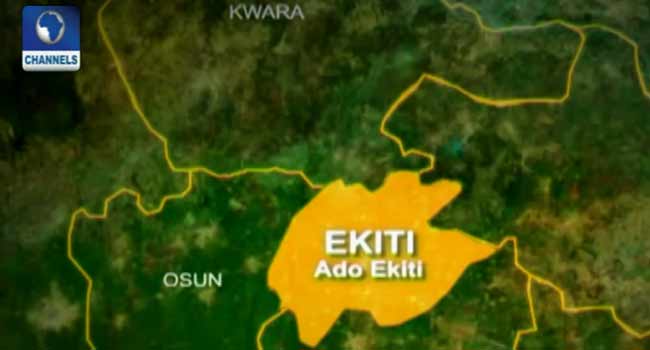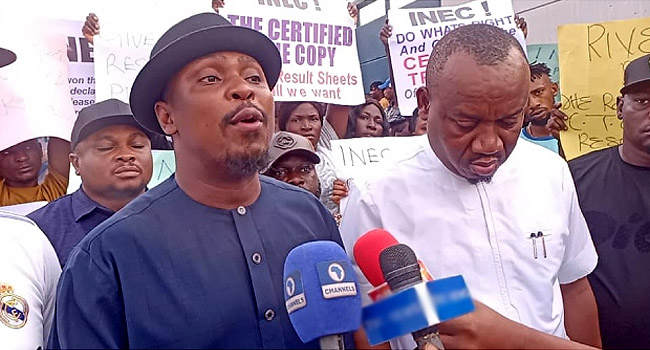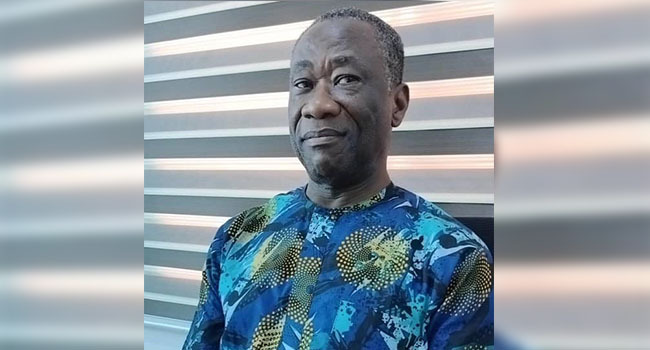Suspected Herdsmen Kill Many In Fresh Benue Attack
Several persons have been killed in a fresh attack on the Ugboju community in the Agatu Local Government Area of Benue State. While conflicting reports trail the exact number…
Report: Rising cases of kidnappings driving up cost of living in Abuja
A report by SB Morgen (SBM) Intelligence says the rising cases of kidnappings in the federal capital territory (FCT) are driving up the cost of living in the city.…
Bandits Demand N290m, Food Items To Release 7 Abducted Abuja Residents
Bandits, who abducted seven residents of Kuduru, a neighbouring community in Bwari Area Council, Abuja, have reportedly demanded N290 million ransom to release the hostages. The victims, including a…
Things Would Have Been Worse If Subsidy Didn’t Go – FG
The Federal Government has again defended its removal of subsidy on petroleum despite the cost of living and inflation soaring in the aftermath of the move. Nigeria had for…
Kidnappers Of Ekiti Pupils, Teachers Demand N100m Ransom
Abductors of pupils and teachers of The Apostolic Faith Montessori School in Emure Ekiti have demanded a ransom of N10m each for the abductees. Five pupils, four teachers, and…
CBN Orders Banks To Sell Excess Dollars
The Central Bank of Nigeria (CBN) has ordered Deposit Money Banks (DMBs) to sell their excess dollar stock latest February 1, 2024, as part of moves to stabilise the…
Bandits kidnap director near military base in Abuja
Bandits, on Thursday, abducted a director in Federal Housing Authority, Federal Capital Territory, identified as Aondo Ver, from his home, during an attack about 200 metres close to a…
One in every 10 extremely poor people live in Nigeria, says World Bank
It is estimated that about 70.92 million Nigerians are in extreme poverty, according to the World Poverty Clock.The figure translates to 11 per cent of the world’s extreme poor.…
Gaza Is Starving To Death – WHO
The World Health Organization’s emergencies director Michael Ryan has said that Gaza is suffering under constraints on humanitarian aid, according to Qatar broadcaster Al Jazeera. Israel has consistently stymied…
Naira falls to N1,530 at parallel market, surpasses official window rate
The naira, on Wednesday, crossed the N1,500 mark at the parallel section of the foreign exchange (FX) market. The value of the naira fell to N1,530 against the dollar…
Judicial drama: Abuja court orders arrest of Fubara’s CoS | Rivers court blocks arrest
A judicial drama played out on Wednesday when a court issued an order granting permission to the police to arrest Edison Ehie, chief of staff (CoS) to Siminalayi Fubara,…
22-Year-Old Arrested For Buying Car With ‘Fake Bank Alert’
Men of Ondo Police Command have arrested a 22-year-old man, Bakare Ayobami, for allegedly buying a car with fake bank alert. The Public Relations Officer of the Command, SP…
House of David loses multi-million naira Lagos church to fire
The Household of David church in Surulere Street, Adeniyi Jones in the Ikeja Local Government Area of Lagos State has lost its multi-million naira church auditorium to a fire…
Nude pictures found on suspended UNICAL Dean’s phone- ICPC investigator
An investigator from the Independent Corrupt Practices and Other Related Offences Commission, Lucy Ogechi, said a forensic analysis of the phone belonging to the suspended Dean of the Faculty…
PHOTOS: Over 30 dead as tanker explodes in Imo forest
Over 30 bodies were said to have burnt to ashes after a tanker suspected to be used by oil bunkers exploded in the forest of Obitti, Ohaji/Egbema Local Government…















